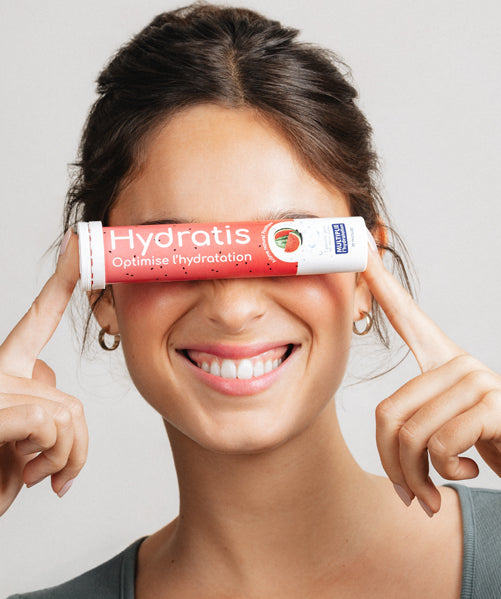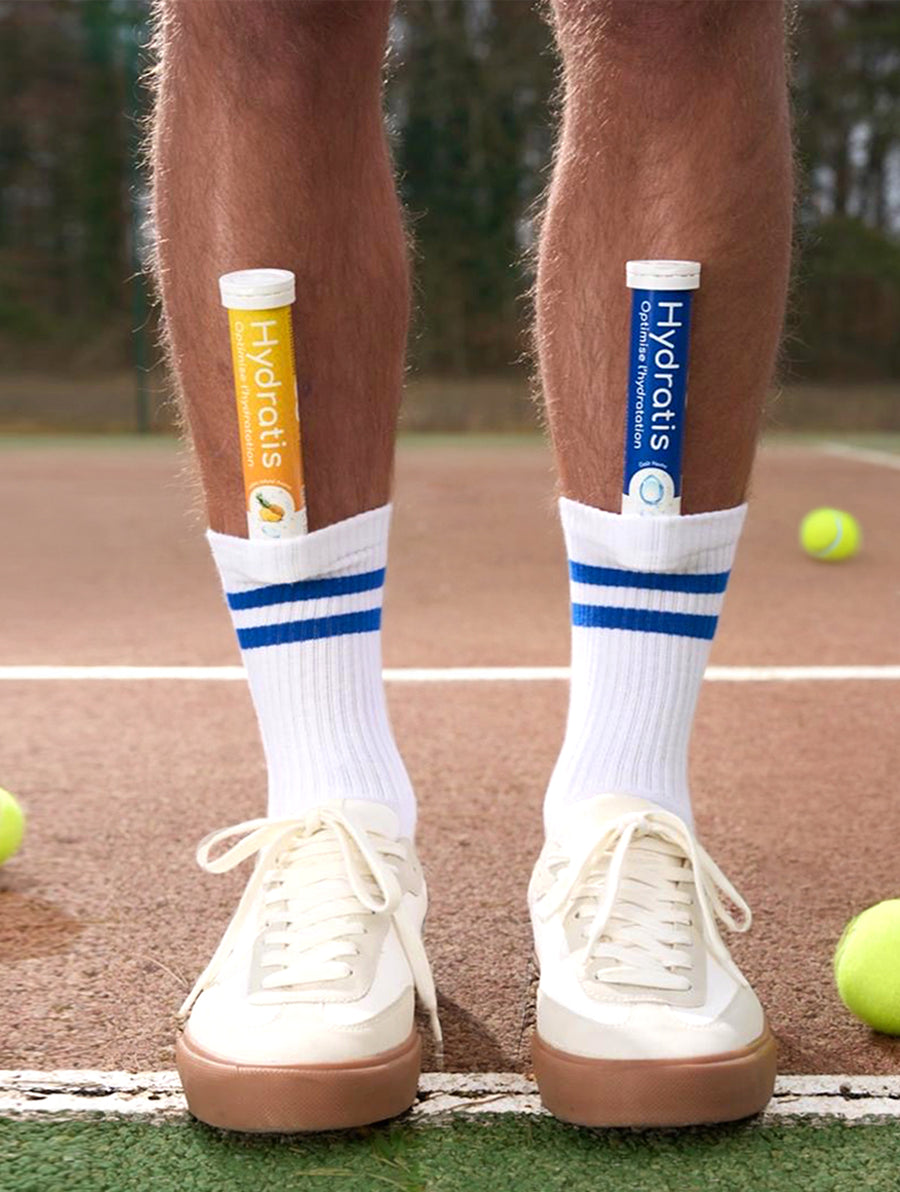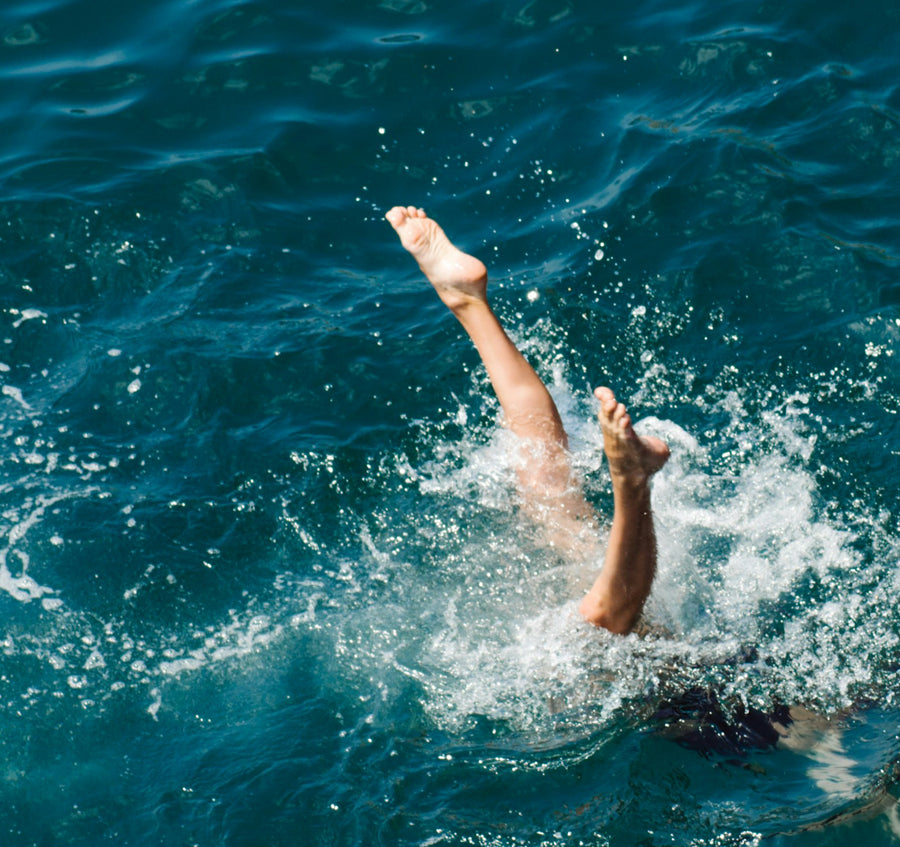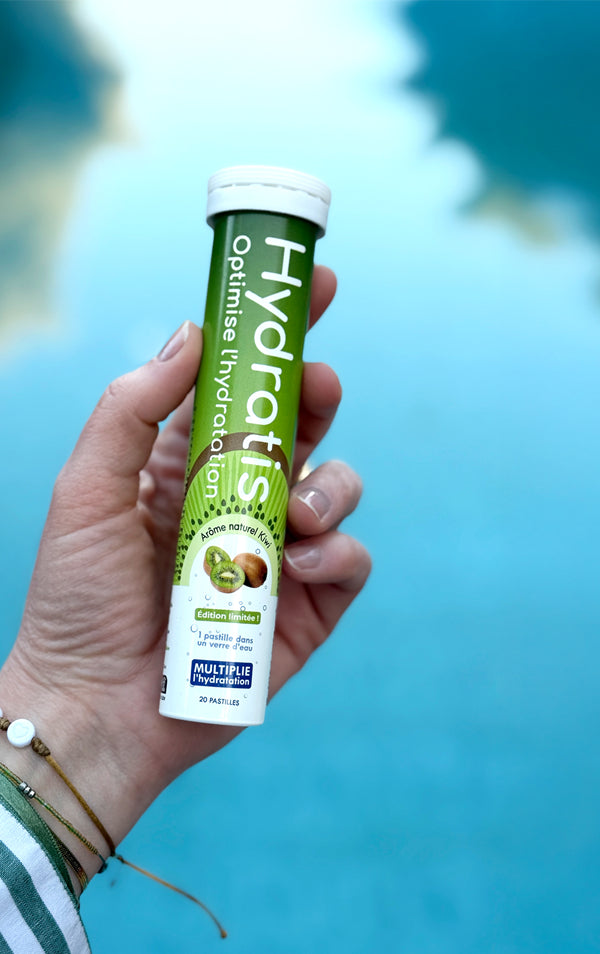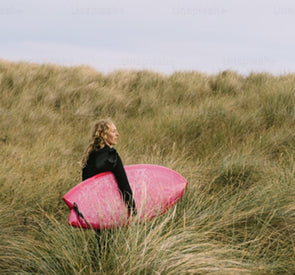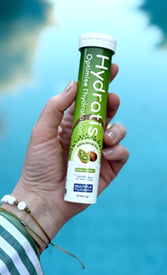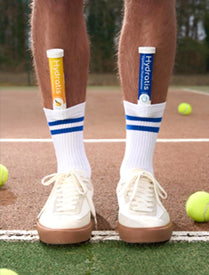Drinking enough water is essential at any age. But for seniors, it's even more important for staying fit and maintaining their health. Yet, many older adults don't drink enough and suffer the consequences. In this article, we'll explain why hydration is so important for older adults , how to recognize the signs of dehydration , how much water to drink each day , and most importantly, how to establish good daily habits to minimize the risks.
Why are older people more at risk of dehydration?
Decreased sensation of thirst with age
With age, the Your body signals thirst less effectively . This means you can already be dehydrated without even feeling it. That's why you need to drink regularly , even if you don't feel the need or desire.
Medications and medical conditions that promote water loss
If you are taking medication for high blood pressure, diuretics, or other drugs, you need to be even more vigilant. These treatments often increase water and mineral loss. The same is true for certain conditions such as diabetes or kidney failure.
Mobility or cognitive problems: a barrier to hydration
Difficulties moving around, preparing a drink, or memory problems are all examples of Factors that prevent a senior citizen from drinking properly . In this case, your role, as a relative or caregiver, is to remind them, suggest, and facilitate their daily water consumption.
What are the signs of dehydration in seniors?

Physical symptoms: fatigue, confusion, dry mouth...
Do you feel more tired than usual ? Do you have a dry mouth, chapped lips , or darker urine than normal? These are the most common signs of dehydration.
Severe symptoms: hypotension, fever, falls, etc.
If dehydration worsens, it can manifest as dizziness, a drop in blood pressure, or fever . Frequent cramps, confusion, or a fall should also alert you immediately. Note, however, that it is not always easy to detect dehydration from these signs. You must therefore pay attention to them!
How to quickly detect dehydration?
Pinch your skin to see if the skin fold persists. If it does, increase your fluid intake and, if possible, consult a doctor. You can also rely on the color of your urine. You can take our online hydration quiz to learn more.
How much water should an elderly person drink each day?
Official recommendations
On average, an adult should consume 1.6 to 2 liters of water per day is the recommended daily intake through beverages. The water contained in food provides approximately 20% of this daily requirement (about 400 to 500 ml). Daily intake should be adjusted according to physical activity, health status, and temperature. In hot weather or when ill, for example, you should drink more and consume more hydrating foods.
What sources of hydration should we prioritize?
|
Source of hydration |
Benefits |
To be preferred |
|
Still water |
An essential reference, calorie-free |
All day |
|
Sugar-free herbal teas and infusions |
Moisturizing and comforting |
After meals |
|
Soups, broths and stock |
Rich in water and minerals |
Evenings and cold periods |
|
Fruits rich in water (watermelon, melon, orange...) |
Water intake + vitamins |
Snacks |
|
Vegetables (cucumber, tomatoes, courgettes … ) |
Refreshing, rich in fiber |
Main meals |
|
Drinks (fruit juices, smoothies, skimmed milk … ) |
Hydration + antioxidants + vitamins |
Breakfast or snack |
How can we help an elderly person to stay better hydrated on a daily basis?
Practical tips to encourage fluid intake
Tip #1: Flavor the water with fresh fruit or herbs to enhance the taste.
Second tip : vary your intake throughout the day: a juice without added sugar in the morning, an herbal tea in the afternoon, a soup in the evening.
Tip #3: Create a hydration routine. Rather than forcing yourself to drink large glasses, it's better to take several small, regular sips. Associate them with fixed times: a glass upon waking, before each meal, another in the afternoon, and a final one at bedtime. These simple guidelines ensure a consistenthydration intake .
Technical aids: ergonomic lenses, reminders...

For those who have difficulty drinking independently due to a swallowing disorder or neurodegenerative disease, provide them with ergonomic cups with handles or a spout, as well as suitable straws. It can also be helpful to always keep water nearby: the more easily accessible and visually close the water is, the easier it will be to remember to drink.
You can also use sticky notes, set an alarm or install a mobile reminder app to limit forgetfulness.
The consequences of poor hydration in seniors
If you don't drink enough, you risk serious problems: lack of energy, muscle weakness, confusion, impaired alertness, recurrent urinary tract infections, and hospitalization in the most severe cases . Indeed, dehydration is a frequent cause of hospital admissions for seniors . EMERGENCIES .
Staying hydrated during heat waves and periods of high heat
Tips for dealing with a heatwave
In hot weather, you should drink more than usual and favor water-rich foods such as salads, compotes, and fresh fruit. Remember to always keep a bottle of water within reach.
Adapt the environment
Close the shutters during the day , wear light and airy clothing, and use a fan or misting spray. If you go out, choose the morning or evening, when it's shaded.
Special cases: hydration of dependent elderly people or those with Alzheimer's
Strategies for people with disorientation
If you are accompanying a disoriented patient, offer them drinks regularly, without waiting for them to ask. Also offer them smoothies or diluted juices in brightly colored glasses or cups. study shows that using high-contrast containers (bright red or blue) helps people with Alzheimer's to drink and eat more.
The role of caregivers and healthcare professionals
If you are a caregiver or healthcare professional, whether at home or in a nursing home , your role is essential. By reminding, encouraging, and adapting the presentation of drinks, you directly contribute to the health and comfort of seniors.
What should an elderly person drink?

You should favor still water, unsweetened herbal teas, and soups or broths, which are simple, effective sources of nutrient intake with no side effects. You can also drink fruit juices without added sugar, smoothies, and even skim milk.
Warning: Limit coffee, strong tea, alcohol, and sodas. These drinks can have the opposite effect and may even worsen certain health problems.
FAQ – Hydration for seniors: your frequently asked questions
Why don't older people drink?
Because the sensation of thirst decreases with age, and certain treatments or diseases worsen this tendency.
How do you get an elderly person to drink?
By regularly offering small amounts, varying the drinks and establishing a daily routine.
How much water does an elderly person need?
On average, you should drink between 1.6 and 2 liters per day.
How can you tell if a senior citizen is dehydrated?
You should watch for dark urine, fatigue, headaches, dry mouth, or confusion.
What should an elderly person drink?
Water as a priority, but also herbal teas, broths, smoothies or fruit juices.
Conclusion
Water regulates body temperature, transports nutrients, aids digestion, and supports every vital bodily function. If you are over 60, you need it even more to maintain your health and alertness. That's why you should incorporate hydration into your nutrition plan and adopt healthy habits. Consider every glass of water a crucial preventative measure against dehydration. And if you are caring for an elderly loved one, remind them of the importance of drinking water, offer them several options, and make it easy for them to access it.
Bibliography
Pence, J., Davis, A., Allen-Gregory, E., & Bloomer, RJ (2025) . Hydration Strategies in Older Adults. Nutrients , 17(14), 2256. https://doi.org/10.3390/nu17142256
Mentes, J. (2006) . Oral hydration in older adults: Greater awareness is needed in preventing, recognizing, and treating dehydration. American Journal of Nursing, 106(6), 40-49. https://doi.org/10.1097/00000446-200606000-00023
Masot, O., Miranda, J., Lavedán Santamaría, A., Paraiso Pueyo, E., Pascual, A., & Botigué, T. (2020) . Fluid intake recommendation considering the physiological adaptations of adults over 65 years: A critical review. Nutrients , 12(11), 3383. https://doi.org/10.3390/nu12113383
Dunne, T.E., Neargarder, SA, Cipolloni, P.B., & Cronin-Golomb, A. (2004) . Visual contrast enhances food and liquid intake in advanced Alzheimer's disease. Clinical Nutrition , 23(4), 533-538. https://doi.org/10.1016/j.clnu.2003.09.015
El-Sharkawy, A.M., Watson, P., Neal, KR, Ljungqvist, O., Maughan, RJ, Sahota, O., & Lobo, DN (2015) . Hydration and outcome in older patients admitted to hospital (The HOOP prospective cohort study). Age and Aging , 44(6), 943-947. https://doi.org/10.1093/ageing/afv119
